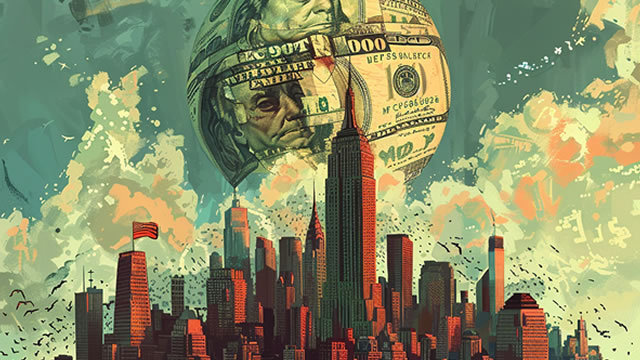A Rollercoaster Ride in the Stock Market: Tariff Uncertainties and the Potential Recession
The stock market has been on a wild ride lately, leaving investors feeling as if they’re strapped into a runaway rollercoaster. The cause of this turbulence? Tariff uncertainties and the looming specter of a potential recession.
The Market’s Downturn: A Closer Look
The S&P 500, one of the most widely-followed stock market indices, experienced a severe meltdown in recent weeks. This downturn was triggered by a number of factors, including rising interest rates, geopolitical tensions, and, most notably, uncertainty surrounding trade tariffs.
Tariffs, essentially taxes on imported goods, have been a hot topic in global politics for some time now. The United States and China, two of the world’s largest economies, have been engaged in a trade war since early 2018. This conflict has led to the implementation of tariffs on billions of dollars worth of goods, with each side accusing the other of unfair trade practices.
The Impact on the Market: Technical Damage and Resistance Levels
The market’s reaction to these tariff uncertainties has been significant. The S&P 500 saw a sharp drop, losing over 10% of its value in a matter of weeks. This decline, known as a “correction,” is technically defined as a 10% or more drop from a recent peak.
Despite this technical damage, there’s potential for a short-term rebound. However, heavy resistance is expected around the 5,800-6,000 level. Resistance levels are price points where the stock price encounters selling pressure, making it difficult for the price to move higher.
The Effects on You: What Does This Mean for Your Portfolio?
If you’re an individual investor, the market’s downturn and potential recession may have you feeling uneasy about your portfolio. It’s important to remember that short-term market fluctuations are a normal part of investing. However, if you’re concerned about your investments, consider speaking with a financial advisor or considering a more conservative investment strategy.
- Consider rebalancing your portfolio to maintain your desired asset allocation.
- Consider diversifying your investments across various asset classes and sectors.
- Stay informed about global economic and political developments.
The Effects on the World: A Global Perspective
The potential recession and market downturn aren’t just affecting individual investors. The ripple effects of these developments are being felt around the world. Here’s a look at some of the ways this economic uncertainty is impacting various regions:
- China: China, the world’s second-largest economy, has been hit particularly hard by the trade war. The country’s stock market has seen significant volatility, with the Shanghai Composite Index losing over 20% of its value in 2018.
- Europe: Europe, the world’s largest economy, is also feeling the effects of the market downturn. The region’s major stock indices, including the FTSE 100 in the United Kingdom and the DAX in Germany, have all seen significant declines.
- Emerging Markets: Emerging markets, particularly those with close economic ties to the United States and China, are also experiencing volatility. Countries like South Korea, Taiwan, and Mexico have all seen their currencies decline against the US dollar.
A Silver Lining: Opportunities in Uncertainty
While the potential recession and market downturn may be cause for concern, they also present opportunities for savvy investors. In times of economic uncertainty, stocks that are considered “defensive” or “recession-proof” can outperform the broader market. These stocks tend to be in industries that are less sensitive to economic downturns, such as healthcare, utilities, and consumer staples.
Additionally, market corrections and downturns provide opportunities for long-term investors to purchase stocks at discounted prices. These discounted prices can lead to potentially higher returns when the market eventually recovers.
Conclusion: Riding Out the Storm
The stock market’s recent downturn, driven by tariff uncertainties and the potential for a recession, has left many investors feeling uneasy. However, it’s important to remember that short-term market fluctuations are a normal part of investing. By staying informed, diversifying your portfolio, and staying calm during times of uncertainty, you can weather the storm and potentially even turn a profit.
And while the effects of this economic uncertainty are being felt around the world, it’s important to remember that history has shown that the stock market, and the global economy as a whole, eventually recovers. So, hang on tight, and enjoy the ride.





